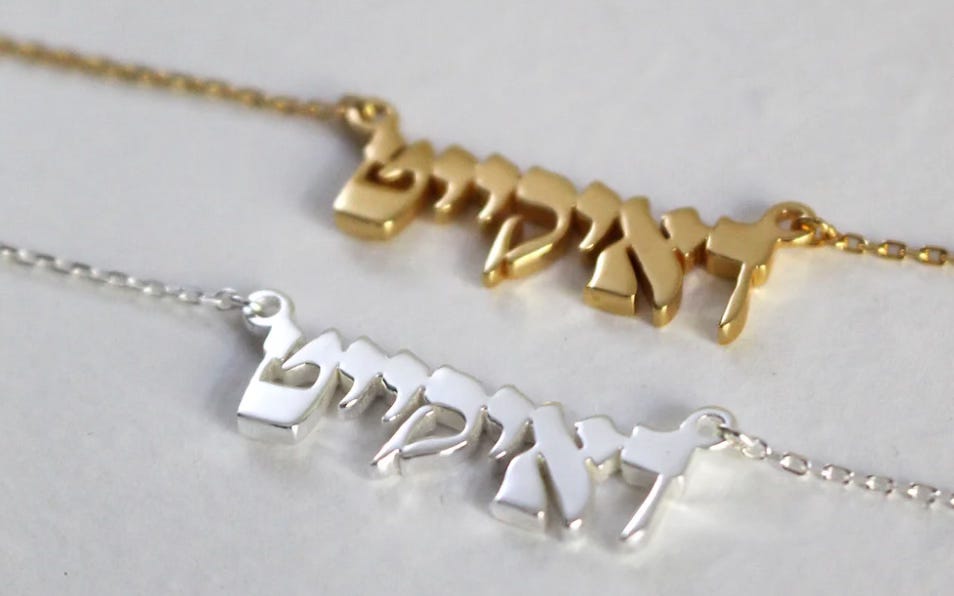Finding Doikayt in Diaspora
AKA I'm the Only Jew within 100 Miles and That Means I've been Thinking
Diaspora is something Jews have been dealing with for millennia. We left the TransJordan region for Egypt, then left Egypt for home, then moved and expanded and subsequently got kicked out of place after place, country after country. Yet, we survived. We adapted our traditions, keeping them close to our chests, passing them down to our children in whispers. And in Poland, in Spain, in Argentina, in Yemen, and beyond, we found belonging.
I am the child of immigrants. Not literally, my parents did not travel across the sea to give me a home here, but their grandparents did. And those individuals raised them as much as they raised me. I am Polish, but native Poles will be quick to point out that I’m “not really Polish” since my mother was not born there. I’m Jewish, but I’m just an “American Jew.” Which is not something I despise, though it seems there are quite a few people trying to make it seem like something despicable. I am so heavily connected to cultures that were born on a landmass across the sea, but I am equally, ostensibly, American.
In the Jewish world, there is seemingly an expectation that you should hate where you’re living. You’re not in Israel, you’re not in the home of our forebears, so obviously everything is horrible and we hate every moment of our existence. I’ve always struggled with this notion. Perhaps it’s because I’ve never been to Israel. Perhaps it’s because my family has been in diaspora for so long, I’ve come to not care where I am. Whatever the reason, it doesn’t erase the guilt I feel for not having that deep, visceral longing for Israel I feel like I’m supposed to have as a Jew.
So imagine my surprise when, in the middle of trying to make a place for myself in America, in a new town, I discover the word doikayt.

Doikayt (pronounced doy-kite) is a Yiddish word coming from the Yiddish word “do” meaning here, and the German suffix “keit” meaning essence. Literally, doikayt means hereness. Coined by the Bund, a worker’s union in Eastern Europe in the late 1800’s, doikayt has been used to encourage Jews in the concept that they deserve to belong wherever they are and should embrace the lands they find themselves in. Even broader, it is the concept that culture, not statehood defines who we are as a people.
This concept settled into my soul like the weight of a scarf on my head. It wrapped around me, murmuring soothing reassurance that it was all okay. That I was not alone in my desire to carve out a place for myself here in Minnesota as a Jew. And, above all, that I was right in my desire for it.
After all, was it not what my ancestors did in Poland? In Austria? Did we not shift our nusach and habits to better suit our climate? Was I not taught to be proud of my heritage and all that it means?
Central Minnesota is not Poland. It is not Austria. It is not even the Twin Cities. I am not surrounded by a group of other young Jewish women and our modern matriarchs. I connect with them via Facebook and Instagram, sending one another links to new recipes. I sit at my kitchen table, watching a young woman practice Jewish folk rituals through a screen, her actions edited down into consumable chunks with a soft musical track and a calm voice over, instead of leaning over the table with her, offering my own prayers into the flickering wicks and fragrant oils. I cannot simply pack my Tallis and drive ten minutes to daven with men and women whose children I used to teach. I cannot walk down the street to the kosher market or pick out a challah board at Target.
I am not alone, which makes this deep feeling of loneliness so strange. I am surrounded by my husband, his family, and their traditions. But their practices are not mine, and while we celebrate and appreciate one another’s traditions, there are more of them than there are of me, and the diaspora I get to experience is two-fold: diaspora from our homeland, and diaspora from my community.
Yet while that feeling persists, I find myself butchering animals to keep my family fed in the winter. I plan a garden for the next year, full of herbs and vegetables I know will keep through the months were I can’t grow anything. I practice a routine of cleaning and washing clothes, all the while walking from my small, temporary home to the place I work, surrounded by my in-laws. And in some way, I feel even closer to my ancestors than ever.
How many of the women who bore the women before me did the same things I am doing? So many, I expect. And through it all, though I am the only Jew in a radius of 100 miles (to my knowledge), I embrace doikayt. This is my home, and I will make it such. I will hang Christmas lights on the front of the shop and turn around to welcome in Shabbat with hushed prayers and rosemary oil.
I get to exist here. So I will make a life here as well.






Beautiful